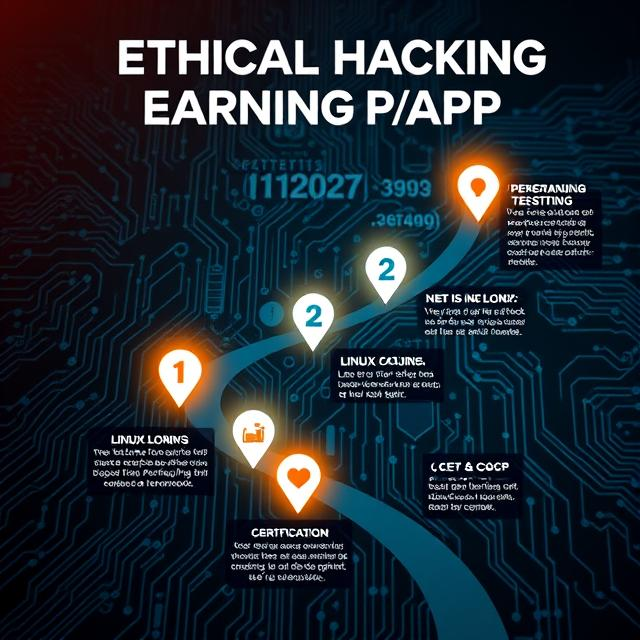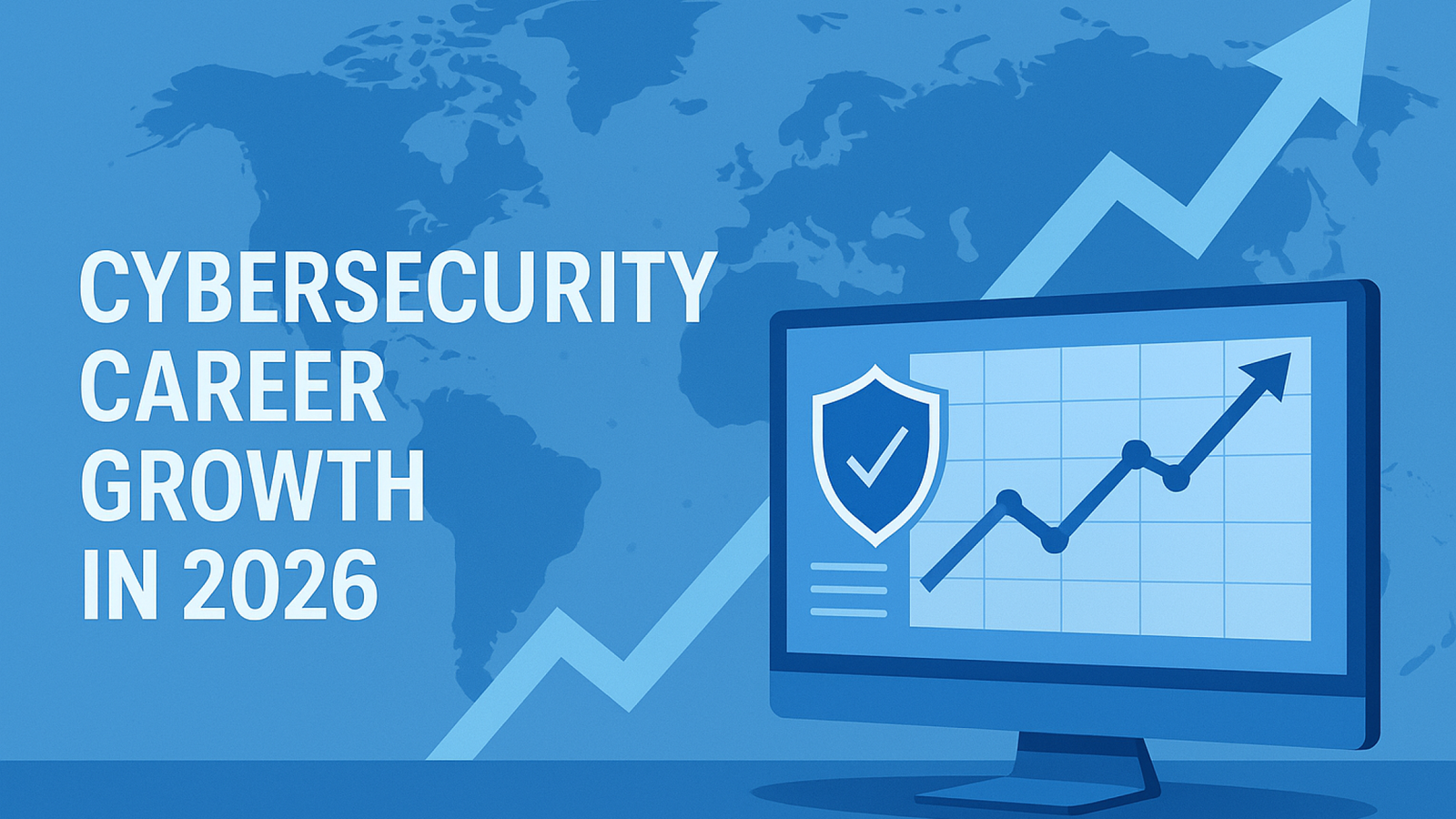The Ultimate Ethical Hacking Roadmap

In today’s digital age, cybersecurity has become a critical concern for businesses and individuals alike. With cyber threats evolving at an unprecedented pace, the demand for skilled ethical hackers is skyrocketing. If you’re passionate about technology and want to make a difference in the world of cybersecurity, an ethical hacking roadmap is your key to success.
At Cambridge Infotech, we’re committed to helping aspiring cybersecurity professionals navigate their journey. In this comprehensive guide, we’ll walk you through the step-by-step ethical hacking roadmap, covering everything from foundational skills to advanced certifications and career opportunities.
What is Ethical Hacking?
Ethical hacking, also known as penetration testing or white-hat hacking, involves legally breaking into computers and devices to test an organization’s defenses. Unlike malicious hackers, ethical hackers use their skills to identify vulnerabilities and strengthen security systems. It’s a rewarding career that combines technical expertise, problem-solving, and a strong sense of ethics.
Why Follow an Ethical Hacking Roadmap?
The field of ethical hacking is vast and constantly evolving. Without a clear roadmap, it’s easy to get overwhelmed or lose direction. A structured learning path ensures you build the right skills, gain hands-on experience, and stay updated with the latest tools and techniques. Whether you’re a beginner or an IT professional looking to transition into cybersecurity, this roadmap will guide you every step of the way.
Understand the Basics of Cybersecurity
Before diving into ethical hacking, it’s essential to build a strong foundation in cybersecurity. Familiarize yourself with core concepts such as:
- Networking Fundamentals: Learn about IP addresses, DNS, firewalls, routers, and protocols like TCP/IP, HTTP, and HTTPS.
- Operating Systems: Gain proficiency in Windows, Linux, and macOS, as ethical hacking often involves working across multiple platforms.
- Cybersecurity Principles: Understand confidentiality, integrity, and availability (CIA triad), as well as common threats like malware, phishing, and DDoS attacks.
Recommended Resources:
- CompTIA Network+ and Security+ certifications.
Learn Programming and Scripting
Ethical hackers rely on programming to automate tasks, analyze data, and exploit vulnerabilities. Start with these languages:
- Python: Widely used for scripting and penetration testing. Learn Python for free at Python.org.
- Bash: Essential for Linux-based hacking tools. Check out Bash scripting tutorials.
- JavaScript: Useful for web application security testing. Learn JavaScript at MDN Web Docs.
- SQL: Critical for database security and SQL injection attacks. Practice SQL at SQLZoo.
Pro Tip: Practice coding regularly on platforms like HackerRank or LeetCode to sharpen your skills.
Master Ethical Hacking Tools and Techniques
Ethical hackers use a variety of tools to identify and exploit vulnerabilities. Some of the most popular tools include:
- Nmap: For network scanning and discovery. Download Nmap from nmap.org.
- Wireshark: For packet analysis. Get Wireshark from wireshark.org.
- Metasploit: For penetration testing and exploit development. Learn Metasploit at Rapid7.
- Burp Suite: For web application security testing. Explore Burp Suite at portswigger.net.
Hands-On Practice: Set up a virtual lab using tools like VirtualBox or VMware.
Gain Certifications
Certifications validate your skills and make you stand out in the job market. Here are some of the most recognized certifications for ethical hackers:
- Certified Ethical Hacker (CEH): Offered by EC-Council.
- Offensive Security Certified Professional (OSCP): Learn more at Offensive Security.
- CompTIA PenTest+: Details at CompTIA.
- Certified Information Systems Security Professional (CISSP): Explore at ISC2.
Why Certifications Matter: They not only enhance your knowledge but also increase your earning potential and career opportunities.
Specialize in a Niche
As you gain experience, consider specializing in a specific area of ethical hacking, such as:
- Web Application Security: Focus on securing websites and web apps.
- Network Security: Protect networks from unauthorized access.
- Cloud Security: Secure cloud-based infrastructure and services.
- Mobile Security: Address vulnerabilities in mobile devices and apps.
Career Tip: Specializing in a niche can make you an expert in high-demand areas, leading to better job prospects and higher salaries.
Stay Updated and Network
The cybersecurity landscape is constantly changing, with new threats and technologies emerging every day. Stay updated by:
- Following cybersecurity blogs and news sites like Krebs on Security and Dark Reading.
- Joining online communities like Reddit’s r/ethicalhacking or Cybrary.
- Attending conferences like DEF CON and Black Hat.
Networking: Connect with industry professionals on LinkedIn and participate in cybersecurity meetups to expand your opportunities.
Build a Portfolio and Apply for Jobs
Once you’ve gained the necessary skills and certifications, it’s time to showcase your expertise. Create a portfolio that includes:
- Case studies of penetration tests you’ve conducted.
- Write-ups of vulnerabilities you’ve discovered.
- Contributions to open-source cybersecurity projects like OWASP.
Job Roles: Look for roles like Ethical Hacker, Penetration Tester, Security Analyst, or Cybersecurity Consultant.
Why Choose Cambridge Infotech for Your Ethical Hacking Journey?
At Cambridge Infotech, we offer industry-leading courses and training programs designed to help you master ethical hacking. Our expert instructors, hands-on labs, and certification-focused curriculum ensure you’re job-ready from day one. Whether you’re a beginner or an experienced professional, we’re here to support you every step of the way.
People Also Ask
What is the roadmap to become an ethical hacker?
The roadmap to becoming an ethical hacker involves building a strong foundation in cybersecurity, learning programming and scripting, mastering ethical hacking tools, gaining certifications, specializing in a niche, and staying updated with industry trends. Follow the step-by-step guide above for a detailed roadmap.
What are the 5 stages of ethical hacking?
The 5 stages of ethical hacking are:
- Reconnaissance: Gathering information about the target.
- Scanning: Identifying open ports and vulnerabilities.
- Gaining Access: Exploiting vulnerabilities to gain access.
- Maintaining Access: Ensuring continued access for further testing.
- Covering Tracks: Removing evidence of the hack to simulate a real-world attack.
Can a 12th pass become an ethical hacker?
Yes, a 12th pass student can become an ethical hacker. While a degree in computer science or cybersecurity can be helpful, it’s not mandatory. Focus on gaining certifications like CEH or OSCP, building hands-on experience, and developing technical skills.
What is the future of ethical hackers?
The future of ethical hackers is bright, with increasing demand for cybersecurity professionals across industries. As cyber threats grow, organizations are investing heavily in ethical hacking to protect their systems and data. Ethical hackers can expect high salaries, job security, and opportunities for growth.
People Also Search For
- Ethical hacking roadmap pdf
- Ethical hacking roadmap github
- Ethical hacking roadmap ppt
- Ethical hacking roadmap for beginners
- Ethical hacking roadmap PDF free download
- Ethical hacking roadmap for beginners pdf
- Ethical hacking roadmap India
- Ethical hacking roadmap reddit
These resources can help you dive deeper into the ethical hacking journey. Many of these materials are available online for free or through platforms like GitHub and Reddit.
Conclusion
The ethical hacking roadmap outlined above is your guide to building a successful career in cybersecurity. By following these steps, you’ll gain the skills, certifications, and experience needed to thrive in this dynamic field. At Cambridge Infotech, we’re passionate about empowering the next generation of ethical hackers. Ready to take the first step? Explore our courses and start your journey today!
Learn more about
Web Development Roadmap 2025 This article provides a comprehensive guide to becoming a web developer by 2025, covering essential skills, tools, and technologies to master for a successful career in web development.
Web Application Examples & Development 2025 Explore the latest trends and examples of web applications in 2025, showcasing innovative designs, functionalities, and development techniques shaping the future of web apps.
Web Development Courses Discover the best web development courses available, offering in-depth training on front-end, back-end, and full-stack development to help you build a strong foundation in web technologies.
Top Web Development Projects 2025 Get inspired by the top web development projects of 2025, highlighting creative and technical advancements that are setting new standards in the industry.
Web Developer Salary in India Learn about the current salary trends for web developers in India, including factors that influence earnings and how to maximize your income in this field.








